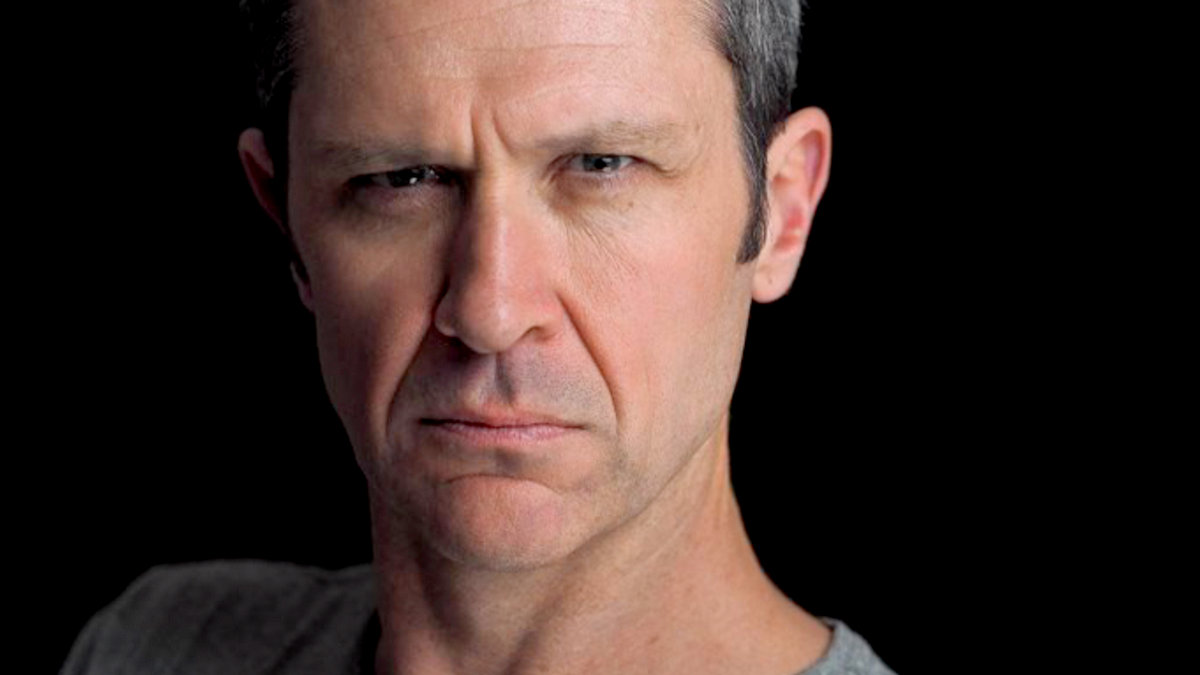
My performance background began in high school Gilbert and Sullivan operettas. Where for the first few years at the all-boys school I played female roles. I was small with a high pitch voice. I was immediately captivated with the fun, humor and hustle to be ready for curtain call.
As an adult, I had a career change. My partner suggested I pursue something I was passionate about. As a martial arts instructor I would create threatening scenarios to engage my students. I played the ‘bad guy’ to push their comfort zone. People always expressed how threatening they found me in these situations. So, I felt like I had something I could use in a more creative and formal manner like film.
indieactivity: What acting technique do you use?
Cris Cochrane (CC): I had followed some of Andrew Walsh’s works and social media. I decided to introduce myself to him. At which point he asked to have a coffee with me to get to know each other better.
Watch the Official Trailer for How Deep Is The Ocean Starring Cris Cochrane, directed by Andrew Walsh
I’d mentioned that I’d recently completed a long short film and feature film. In it, all the dialogue was improvised and that I enjoyed building up the characters. I allowed the dialogue to be as natural as possible. When met, I showed him a 19-minute one-shot scene with the improv. He talked a bit about ‘How deep is the ocean’. I found fascinating as I really value drama and emotive stories.
Later, we discussed proposed shooting schedules. It was at that point I realized I was likely to be in the US on another feature shoot. But, we remained in contact and when COVID-19 hit and the US shoot was postponed. I let Andrew know my situation and offered to still be involved in any capacity. At this point, I was asked to assist in the casting of Elanor. After that, I was told that if I wished I could play Roy, the rest is history.
Let’s take this project you did; how did you prepare for such a role: the cast, the physicality, the terrain, the climate, weather and the demands of the project?
Cris Cochrane (CC): Andrew, Olivia and I rehearsed a few key scenes several times to make sure we had our dynamics and timing right as well as including important facts in the dialogue. For me, as Roy, I attempted to write a stand-up comedy routine, in case it could. Be used as dialogue. I found it challenging but useful in having a sense of Roy’s change of fortunes and outlook.
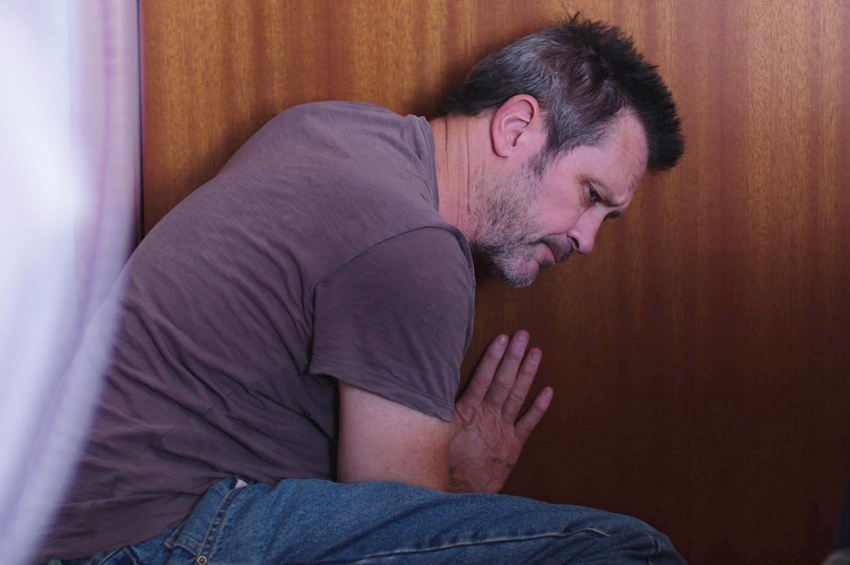
How do you create the character from a script into a person?
Cris Cochrane (CC): I have at times during my life been a little too familiar with heavy drinking, both personally and culturally (cricket club and working for a local council where there were many alcoholics), I tried to incorporate the functioning alcoholics I’ve known into Roy’s earlier sense of self, and the non-functioning ones into the Roy the film shows. Andrew was very supportive in encouraging me not to be a particularly messy drunk in character, apart from one scene, and we were both of the belief that better film drunks are the ones that aren’t always obvious and it is more realistic to play the role as a drunk person trying to show he’s not actually drunk, rather than be too obvious.
What part of the story challenged you when you read it? What drove you to get on the project?
Cris Cochrane (CC): I really found Elanor’s sense of disconnection from the people in her life, apart from mainly Roy, and he’s clearly a broken character himself, very challenging to not be moved by. My drive to be involved was very much due to the dramatic nature of the story, without bells and whistles or explosions; the story of emotions developing and life going on regardless is more appealing to me than smoke and mirrors.
Explain one creative choice you took on the set of this production?
Cris Cochrane (CC): The night before a shoot in which Roy is hungover I deliberately had the bare minimum sleep- about 2 hours, to ensure I was suitably haggard looking the next day.
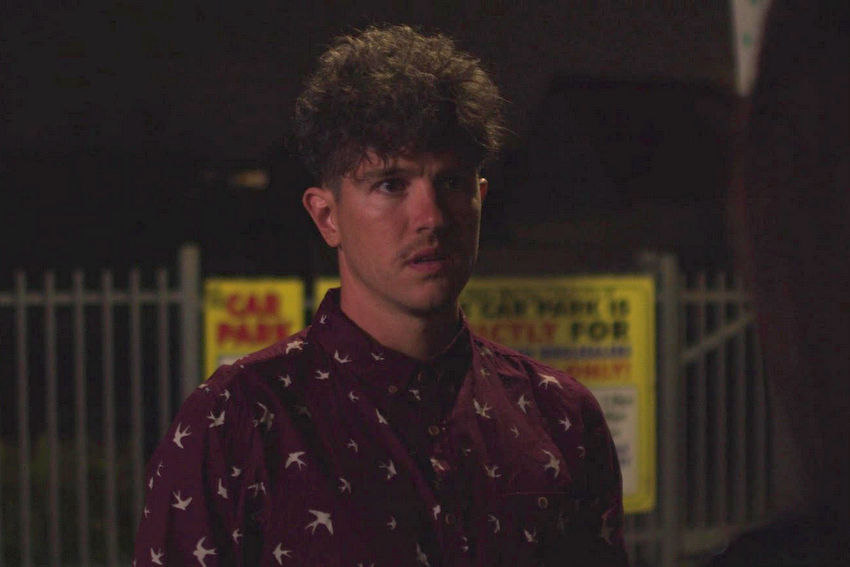
You’re not new to indie films. What do you enjoy about the work that keeps you working?
Cris Cochrane (CC): I enjoy the camaraderie between this crew that I have worked with several times, and being afforded the opportunities to be involved in the characters development.
Give an example of a direction you received from the director during the production?
CC: As stated, Andrew advised me to play a person who is drunk, but trying not to show some small slurs on words, not being concerned if I stumble on words or sentences, these things are more real and similar to natural conversation.
How did you collaborate with your cast members from scene to scene?
CC: We established safe lifting techniques for moving Roy’s body when it became clear a dead weight wasn’t feasible. We bounced ideas on things we could cover in improve supplementary to the essential points of dialogue.
As the main cast in the film, describe the feeling of responsibility that you shouldered. Were you scared? Or did it fire you up? What scenes were difficult to shoot?
CC: I felt it was important that I was always ready with my understanding of the scenes relevance to the film, on my mark before being asked and on time…and the one time I was late because I miss-read the call sheet, that I was ready to jump into the scene as soon as I got on set because I felt terrible people had to wait for me.
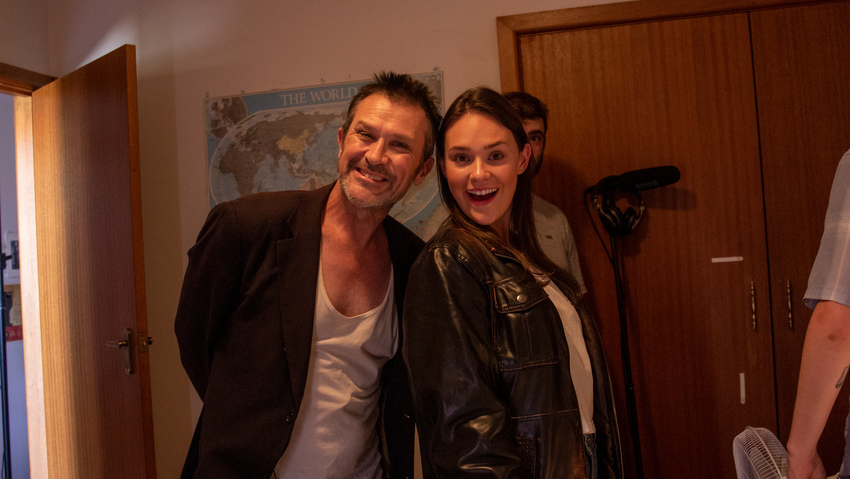
I generally don’t feel scared when doing improv dialogue because I like to put more into the character preparation so the dialogue comes out naturally, the only time I do worry is when the dialogue has a lot of tech/jargon of things I may not be familiar with, or when a chunk of script has several similar sounding sentences, then I worry I’m jumble them up, which wasn’t the case with this film.
The difficult scene to shoot in ‘How deep is the ocean’ was one in which my character Roy was passed out on a hall floor, with three adult actors and a crew In the confined space and the need to pick me up and move me around created some challenges, but we worked through them and I feel the result will look very real.
What did you take away from the film production?
CC: Apart from making new friendships and working with an amazing dedicated and talented crew and cast, I found out that there are still a lot of people out there making strong dramatic based films with a drive to tell very real and personal stories, working with director/writer Andrew really strengthened that understanding.
What do you like most about the director, and his/her collaboration with his/her team?
CC: As stated, Andrew has a clear passion, talent and drive to tell stories that are both subtle and strong, with a keen focus on ’real’ people. He was also highly encouraging of myself and the other performers to make the roles our own, and he clearly has great belief and trust of his crew’s capabilities.
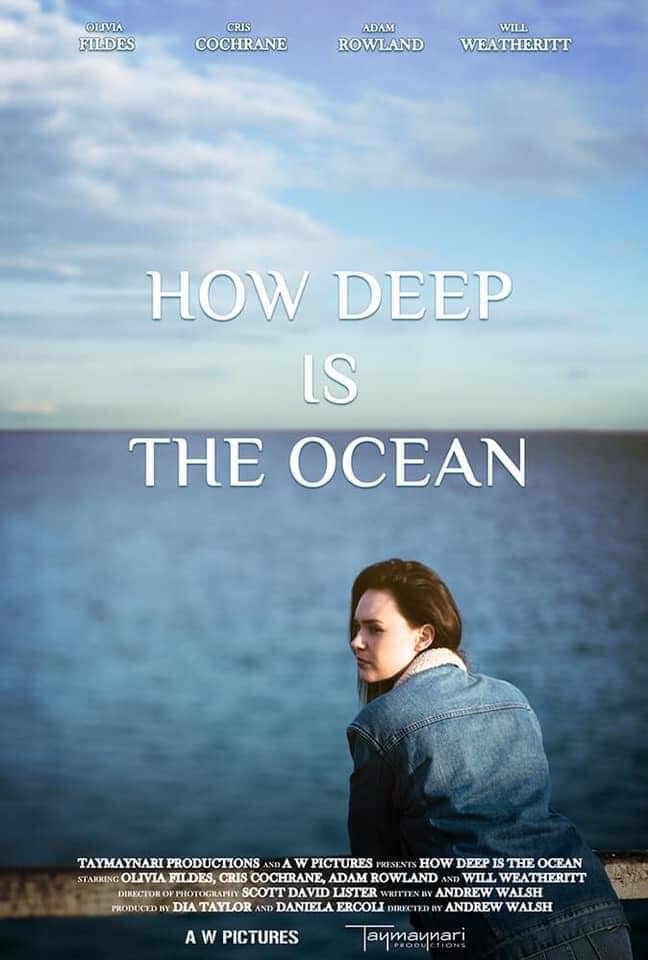
What is next for you?
CC: With the film industry coming to a virtual standstill for the better part of 2 years I studied in my other passion the field of ecology and now have a full time career in that; still, I love performance and have done several music video since the industry has started up again, and am in the early stages of a science fiction film with Pandora productions who I have also worked with several times.
Both my sons have acted and my youngest is currently working on Dia Taylors feature ‘Disconnected’, so even when not performing myself I can still be found on sets as a guardian. Additionally to all of that ‘Locked in productions’ film maker Giovanna Mercuri and I are in early talks over me possibly narrating/presenting a documentary on Victorian birdlife… so there is always something on the cards!
What advice do you give actors regarding what you learnt on the project?
CC: Do your research, know your characters, even when it’s indie, be the utmost professional, and always remember that as actors, we don’t get seen on screen with the long hours of hard work crew put in that is often not noticed, value them highly.
Tell us what you think of the interview with Cris Cochrane. What do you think of it? What ideas did you get? Do you have any suggestions? Or did it help you? Let’s have your comments below and/or on Facebook or Twitter.
Follow Cris Cochrane on Social Media
IMDb
Twitter
Facebook
Instagram
Apple TV picks up “Dismissed” by Aysha Scott After it Hit a Million Views
Single mother entrepreneur from South-East London, built up an empire from scratch.
MOEDER Oscar® Qualified Drama Based on MH17 Airline Disaster
OSCAR® Qualified MOEDER tells a story tragedy on the Ukrainian-Russian border
Nate & John Oscar® qualified Animation Short Directed by Jumai Yusuf
NATE & JOHN heartwarming animation short qualifies for the 97th Academy® Awards
Dreama Team by Chad Weber & Steve Vanderheide Acquired by Freestyle for November Release
Feature Documentary Dreama Walton Sets Digital Debut for Global VOD Platforms and on DVD on Nov 1, 2024
LGBTQ+ Film, “Muscat” by Philippe Grenier Qualified the Oscars®
Muscat is an audacious exploration of a young boy confronted with the discovery of his identity
Joy of Horses by Ava Justin acquired by BMG Global
Joy of Horses by Ava Justin, now available across digital streaming platforms
Vanessa Valente Talks Reality TV, Online Bullying and Healing on Sisters Uncensored Podcast
The Temptation Island’s reality TV star joins Sisters Uncensored Podcast October 16th
Oscar® qualifying Sunflower: A story of resilience in a war-torn country
Mateusz Balcerek’s Oscar® qualifying Sunflower is an extraordinary story of resilience in a war-torn country









